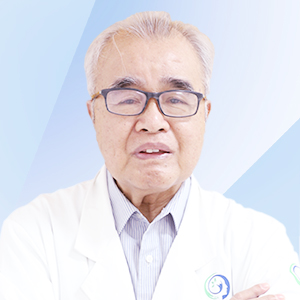广州附医华南医院精神科 > 抑郁症 >
广州抑郁症括悲伤、苦恼、沮丧“不开心”这都是什么原因导致的
来源:广州附医华南心理精神专科医院哪家好 日期:2018-02-08
抑郁这个词,严格来说不是描述一个情绪,而是一组情绪,包括悲伤、苦恼、沮丧,
这是任何人都会遇到的,我们可以笼统的把这一组情绪统称为“不开心”。
抑郁症是一种病因较为复杂的精神性疾病,给患者的正常生活和工作带来困扰,其中导致抑郁症的常见因素有以下4种:
生物化学因素
儿茶酚胺以及吲哚胺的异常变化也是诱发抑郁症的一类常见病因,此类生物化学因素直接影响机体的情感变化。
生理因素
下丘脑功能改变是引发抑郁症的一种生理因素,因为下丘脑与某些生物节律的调节及新陈代谢、植物神经系统功能状态密切相关。
性格特点
性格特点与抑郁症的发生密切相关,其中抑郁性人格障碍是导致抑郁症的一个主要诱因。
孤僻内向、缺乏自信、自责自罪、胆小懦弱、毫无主见等性格特点是诱发抑郁症的一类常见病因,情绪难以自控,常会出现如焦虑、易怒、紧张、烦躁等表现的人也是抑郁症的一类高发人群。
心理社会因素
抑郁症的发生与心理社会因素也有很大关系,很多患者发病都与某种精神刺激有关,既不像反应性抑郁情绪那样表现突出,也不想内源性抑郁情绪那样可自行缓解,当精神刺激无法及时排解和疏导时,就很可能导致机体抑郁症的发生。
关于抑郁症,抑郁情绪你还想了解更多吗?下面广州抑郁症医院 广州治疗抑郁症,广州附医华南医院医生给大家推荐一篇国外的文献阅读,希望您对抑郁症有更多的了解。
Depression is a mood disorder that is characterized by sadness, or having the blues. Nearly everyone feels sad or down from time to time. Sometimes, however, the sad feelings become intense, last for long periods, keep a person from leading a normal life, and can interfere with sleep, appetite, and energy.
The depression symptoms include:
Feeling extremely sad or empty
Feeling hopeless, worthless, or guilty
Feeling very fatigued and slow or anxious and irritable
Loss of enjoyment in things, which were once pleasurable
Lack of energy
Difficulty concentrating, thinking, or making decisions
Changes in appetite that lead to changes in weight
An increase or decrease in the need for sleep
Thoughts of death or suicide, or attempting suicide (if you are thinking of acting on ideas about suicide, it is important to get help or call your local 24-hour suicide hotline right away.)
Depression is classified as "major" if the person has at least five of these symptoms for two weeks or more. However, there are several types of depressive disorders. Someone with fewer than five of these symptoms who is having difficulty functioning should still seek treatment for his or her symptoms. Tell your doctor how you are feeling. He or she may refer you to a mental health care specialist.
How Are Sleep and Depression Linked?
An inability to sleep, or insomnia, can be one of the signs of depression (a small percentage of depressed people, approximately 15%, oversleep or sleep too much). Lack of sleep alone cannot cause depression, but it does play a role. Lack of sleep caused by another medical illness or by personal problems can make depression worse. An inability to sleep that lasts over a long period of time is also an important clue that someone may be depressed.
What Causes Depression?
No one knows for sure what causes depression, but several factors have been linked to it, including:
Family history of mental disorders
Abnormalities in brain circuits that regulate mood
Physical and mental health disorders
Environment, such as living in a place that is often cloudy and gray
Stress
Alcohol or drug abuse
Medications
Lack of support from family and friends
Poor diet
How Is Depression Diagnosed?
Your doctor will take your medical history, and will likely ask you whether anyone in your family has depression or other mental health problems. He or she may also ask you to describe your moods, your appetite and energy, if you feel under stress, and if you have ever thought about suicide.
Your doctor may also perform a physical exam to determine if the cause of your symptoms is caused by another illness.
What Depression and Insomnia Treatments Are Available?
Treatment choices for depression depend on how serious the illness is. Major depressive disorder is treated with psychotherapy (counseling, or talk therapy with a psychologist, psychiatrist, or licensed counselor), medications, or a combination of the two.
The most effective treatment for depression is often a combination of psychotherapy and medication. Drugs tend to work more quickly to decrease symptoms while psychotherapy helps people learn coping strategies to prevent the onset of future depressive symptoms.
CONTINUE READING BELOW
Medications used to treat depression include antidepressants such as:
Selective serotonin reuptake inhibitors (SSRIs), like Zoloft, Prozac, Celexa and Paxil; these medications can perform double duty for patients by helping them sleep and elevating their mood, though some people taking these drugs may have trouble sleeping. Newer antidepressant medicines that affect multiple serotonin receptors besides the serotonin transporter include Viibryd and Trintellix.
Tricyclic antidepressants (including Pamelor and Elavil)
Serotonin/norepinephrine reuptake inhibitors (SNRIs) like Effexor, Pristiq, Khedezla, Fetzima, or Cymbalta, that affect the functioning of brain circuits involved in mood regulation that communicate using chemicals such as serotonin and norepinephrine
Novel antidepressants such as bupropion (Wellbutrin)
Some of the most effective types of psychotherapy for depression are cognitive-behavioral therapy and interpersonal therapy. With cognitive-behavioral therapy, patients learn to change negative thinking patterns that are related to feelings of depression. Interpersonal therapy helps people to understand how relationship problems, losses, or changes affect feelings of depression. This therapy involves working to improve relationships with others or building new relationships
Sleeping Pills
Doctors may sometimes treat depression and insomnia by prescribing an SSRI along with a sedating antidepressant or with a hypnotic medication. However, hypnotic drugs usually should be taken for a short period of time.
Sedative-hypnotics are a class of drugs for people who cannot sleep. These drugs include Ambien , Sonata , Lunesta, and Restoril . The FDA has also approved a prescription oral spray called Zolpimist, which contains the sleep drug Ambien's active ingredient, for the short-term treatment of insomnia brought on by difficulty falling asleep. There are other types of sleep aids in addition to hypnotics, including benzodiazepines like Halcion, Ativan, and Restoril. Also used are Ramelteon, a melatonin agonist and a new drug, Belsomra, an orexin receptor antagonist. Your doctor can help determine which is right for you.
Psychotherapy can also address coping skills to improve a person's ability to fall asleep.
What Other Techniques Can Help Me Sleep?
In addition to trying medications, here are some tips to improve sleep:
Learn relaxation or mindfulness-based meditation and deep-breathing techniques.
Clear your head of concerns by writing a list of activities that need to be completed the next day and tell yourself you will think about it tomorrow.
Get regular exercise, no later than a few hours before bedtime.
Don't use caffeine, alcohol, or nicotine in the evening.
Don't lie in bed tossing and turning. Get out of bed and do something in another room when you can't sleep. Go back to bed when you are feeling drowsy.
Use the bed only for sleeping and sexual activity. Don't lie in bed to watch TV or read. This way, your bed becomes a cue for sleeping, not for lying awake.
温馨提示:广州的中医院哪家冶抑郁症比较好?广州附医华南精神科医院是一所真正具有中医的中医院,专业治疗失眠症,是广州失眠、抑郁症医院的翘楚
精神分裂症、情感性精神障碍(燥狂症、抑郁症)、儿童精神障碍、人格障碍、偏执性精神障碍、反应性精神障碍、老年精神障碍、失眠症、睡眠障碍(失眠、入睡困难、睡眠不足、经常失眠)、脑外伤所致精神障碍、阿片类药物所致精神障碍、各类神经症、癫痫所致精神障碍、慢性疼痛、性心理障碍、老年性痴呆、躯体疾病所致精神障碍、脑肿瘤所致精神障碍、镇静催眠药物所致精神障碍、精神药物过量与中毒、酒精所致精神障碍、癔症等若您有相关的精神科问题想要咨询,可以在线咨询广州精神病医院医生在线医生哦,还可以在线挂号,在线挂号就诊免排队哟。
然后,还要唠叨一句,抑郁症如果一直自己调理都不好,建议是及时到医院检查治疗,失眠抑郁危害多多百度一下你就知道。
本文章链接地址:http://www.sdjtxh.com/yyz/815.html 上一篇:抑郁症吃什么食物 13个食物防止抑郁症 下一篇:患上抑郁症治疗需要花多少钱?在广州治疗抑郁症费用广州看精神病医院HOSPITAL

出诊医生EXPERT
推荐阅读ANSWER
更多- 广州治疗精神障碍门诊挂号平台[04-21]
- 广州专业的心理疏导医院.[04-21]
- 广州专业的抑郁症专业医院[04-21]
- 广州市治疗精神分裂症医院在什么地方[04-18]
- 广州市专业的儿童心理问题医院哪家好[04-18]
- 广州专业的心理疏导医院[04-18]
- 广州检查心理咨询门诊挂号平台[04-17]
- 广州市检查睡眠障碍找那个医院[04-17]
- 广州市专业的儿童心理问题专业医院[04-17]
- 广州治疗抑郁症去哪家医院[04-16]









